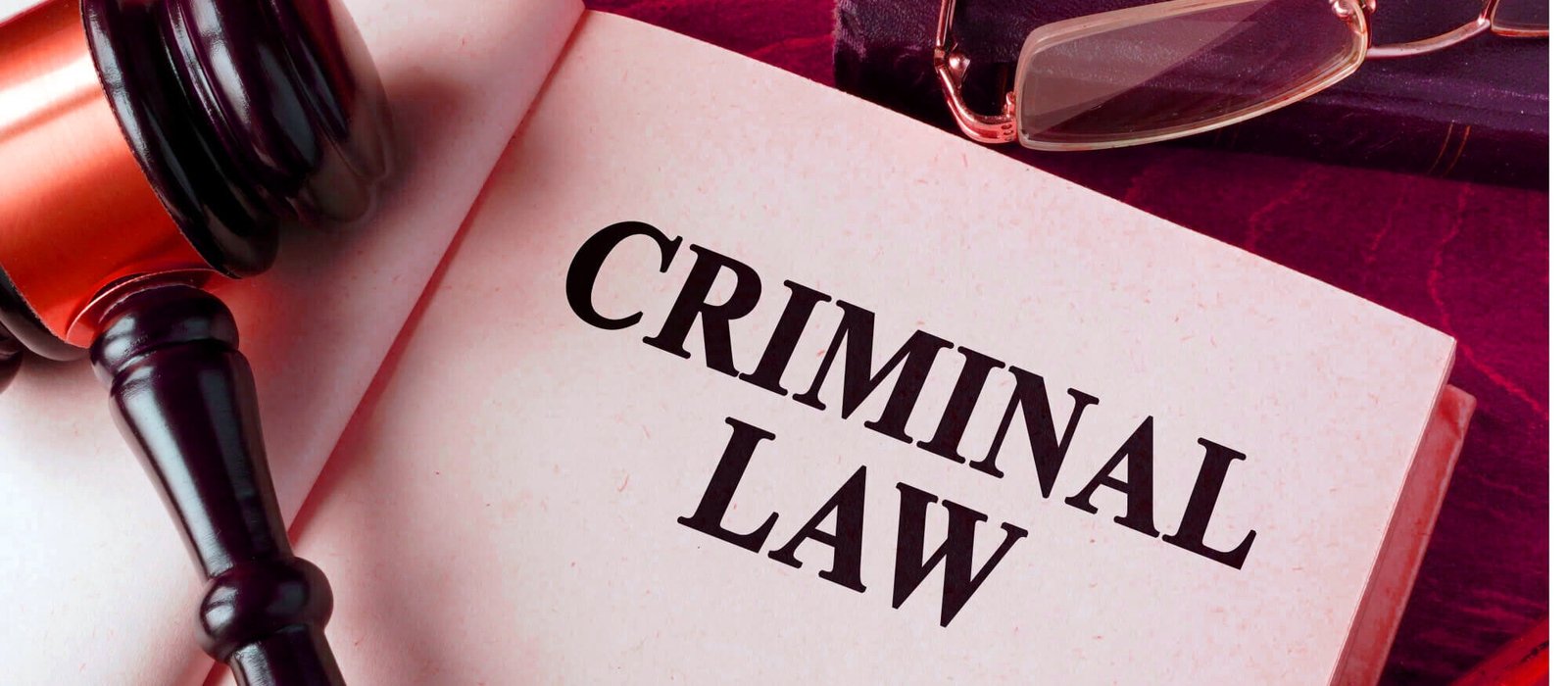Criminal Defense for Domestic Violence Charges in 2024
Learn how to navigate domestic violence charges in 2024 with effective defense strategies and legal insights. Protect your rights today.

In 2024, charges of domestic violence will still provide serious legal obstacles for those who are accused of domestic abuse in intimate relationships. It’s critical to comprehend the nuances of defending against these accusations when legal frameworks and public awareness fluctuate. A wide range of actions, from physical assault to emotional abuse, are included in accusations of domestic violence, and each has significant ramifications for both the accused and the claimed victims. A proactive approach and knowledgeable legal representation are necessary to navigate the complexities of these situations and ensure equitable treatment and upholding of the rights of all parties.
Laws against domestic abuse have grown more severe, indicating that abuse in close relationships is unacceptable. Defending oneself against accusations requires an awareness of legal processes, the development of a strong defence plan, and the effective use of available resources. This article examines the fundamentals of criminal defence in situations involving domestic abuse, providing information on court procedures, legal techniques, and the effect of recent legislative changes on defence strategies in 2024.
Contents
- 1 Criminal Defense for Domestic Violence Charges in 2024
- 2 Common Defense Strategies
- 2.1 Legal Procedures and Court Process
- 2.2 Potential Penalties for Domestic Violence Convictions
- 2.3 Role of Evidence in Domestic Violence Cases
- 2.4 Protective Orders and Restraining Orders
- 2.5 Community Resources and Support
- 2.6 Recent Trends and Changes in Domestic Violence Defense
- 2.7 Challenges in Defending Domestic Violence Cases
- 2.8 The Role of Technology in Domestic Violence Defense
- 2.9 Alternative Resolutions to Domestic Violence Cases
- 3 Ethical Considerations for Defense Attorneys
- 3.1 Client Confidentiality
- 3.2 Balancing Zealous Advocacy and Ethical Boundaries
- 3.3 Sensitivity to Victims and the Community
- 3.4 Avoiding Conflict of Interest
- 3.5 Respecting Court Procedures and Rules
- 3.6 Handling Sensitive Evidence
- 3.7 Professional Development and Legal Education
- 3.8 Promoting Fairness and Justice
- 3.9 Transparency and Accountability
- 3.10 Public Perception and Professional Conduct
- 4 Conclusion
- 5 FAQs
Criminal Defense for Domestic Violence Charges in 2024
Understanding Domestic Violence Laws
The legal framework surrounding domestic violence charges varies by jurisdiction but generally includes statutes designed to protect victims and punish offenders. In 2024, laws have become more stringent, reflecting society’s zero-tolerance stance on domestic abuse. Different types of charges, such as assault, battery, stalking, and harassment, fall under the umbrella of domestic violence, each carrying its own legal implications.
Key Elements of Criminal Defense
Central to a successful defense against domestic violence charges is the retention of a skilled defense attorney. A competent attorney can assess the circumstances of the case, challenge evidence, and construct a defense strategy tailored to the client’s unique situation. Building a strong defense often involves thorough investigation, witness testimony, and expert analysis to refute allegations effectively.
Common Defense Strategies
Defense strategies in domestic violence cases often hinge on disproving the prosecution’s claims. Strategies may include asserting self-defense, demonstrating lack of intent, or proving the accusations are false or exaggerated. Each case demands a meticulous approach to gather evidence and present a compelling argument in court.
Legal Procedures and Court Process
From the moment of arrest through trial, individuals facing domestic violence charges navigate a complex legal process. This process includes arrest procedures, bail hearings, pretrial motions, and potentially a trial by judge or jury. Understanding these procedures and having competent legal representation is crucial for a fair and just outcome.
Potential Penalties for Domestic Violence Convictions
Convictions for domestic violence can result in severe penalties, including imprisonment, fines, mandatory counseling, and restraining orders. These penalties not only impact the accused but also their relationships, career prospects, and personal reputation. Avoiding conviction or minimizing penalties requires a proactive and comprehensive Criminal Defense strategy.
Role of Evidence in Domestic Violence Cases
Evidence in domestic violence cases can range from physical injuries and eyewitness testimony to digital evidence such as text messages or social media posts. The admissibility and credibility of evidence play a pivotal role in shaping the outcome of a case, highlighting the importance of thorough preparation and legal expertise.
Protective Orders and Restraining Orders
Victims of domestic violence often seek protective orders to ensure their safety. These orders restrict the accused’s contact with the victim and may include provisions for child custody and visitation rights. Contesting or modifying these orders requires legal knowledge and strategic planning.
Community Resources and Support
Beyond legal defense, individuals accused of domestic violence can benefit from community resources such as counseling, anger management programs, and support groups. These resources aim to address underlying issues and facilitate rehabilitation, demonstrating a holistic approach to addressing domestic violence.
Recent Trends and Changes in Domestic Violence Defense
Recent years have seen significant changes in how domestic violence cases are approached legally. Court precedents, legislative updates, and societal shifts influence defense strategies and case outcomes. Staying informed about these changes is essential for both legal professionals and individuals navigating the legal system.
Challenges in Defending Domestic Violence Cases
Defending against domestic violence charges presents unique challenges, including navigating public perception, media scrutiny, and societal stigma. Effective defense requires not only legal expertise but also empathy, understanding, and a commitment to protecting the rights of the accused.
The Role of Technology in Domestic Violence Defense
Advancements in technology have introduced new complexities to domestic violence cases, with digital evidence playing an increasingly significant role. Text messages, emails, and social media posts can serve as crucial evidence, raising privacy concerns and legal implications that must be carefully managed by defense attorneys.
Alternative Resolutions to Domestic Violence Cases
In some instances, alternative resolutions such as mediation or plea bargaining may offer viable alternatives to trial. These methods aim to resolve disputes amicably while minimizing the impact on all parties involved. Exploring these options requires cooperation and negotiation between legal counsel and opposing parties.
Ethical Considerations for Defense Attorneys
Defense attorneys in domestic violence cases face complex ethical dilemmas that require careful navigation to uphold professional standards while advocating for their clients’ rights:
Client Confidentiality
Defense attorneys must maintain strict confidentiality to protect their clients’ information, even in the face of public scrutiny and media attention.
Balancing Zealous Advocacy and Ethical Boundaries
While vigorously defending their clients, attorneys must avoid unethical tactics that could harm the integrity of the legal process or compromise fairness.
Sensitivity to Victims and the Community
Ethical defense requires acknowledging the impact of domestic violence on victims and the broader community, balancing the defense’s obligations with societal expectations of justice.
Avoiding Conflict of Interest
Attorneys must navigate potential conflicts of interest, ensuring their representation does not compromise their professional integrity or ethical obligations.
Respecting Court Procedures and Rules
Adhering to court procedures and rules ensures fair treatment for all parties involved, maintaining the integrity of the judicial system.
Handling Sensitive Evidence
Ethical attorneys must handle sensitive evidence, such as victim statements or digital records, with discretion and respect for privacy laws.
Professional Development and Legal Education
Continual legal education is crucial for defense attorneys to stay informed about evolving laws and ethical standards, ensuring competent representation.
Promoting Fairness and Justice
Ethical Criminal Defense attorneys advocate for fairness and justice, recognizing their role in upholding the rights of the accused while respecting the legal process.
Transparency and Accountability
Maintaining transparency with clients about legal strategies and potential outcomes fosters trust and accountability in the attorney-client relationship.
Public Perception and Professional Conduct
Upholding professional conduct in high-profile cases helps mitigate negative public perception and preserves the attorney’s reputation in the legal community.
Read More: Saying Goodbye: Coping with Divorce
Conclusion
In 2024, handling domestic abuse accusations necessitates a thorough comprehension of legal rights, defence tactics, and the intricacies of the court system. It is critical for anyone accused of domestic abuse to get legal representation as soon as possible and to prepare a robust defence. Through the utilisation of accessible materials, comprehension of the dynamic legal environment, and the use of proficient defence attorneys’ knowledge, individuals can proficiently manoeuvre through these demanding situations.
It is critical to acknowledge the effects that accusations of domestic abuse have on all parties concerned and to handle these cases with tact and attention. Within the confines of the law, both the accused and the claimed victims can pursue justice by fighting for equitable treatment and guaranteeing due process. Going forward, combating domestic abuse and promoting a society where people are treated with respect and dignity requires ongoing awareness campaigns, legal education, and community involvement.
FAQs
What should I do if falsely accused of domestic violence?
Immediately contact a defense attorney to begin building your defense and gathering evidence to refute the accusations.
Can I be charged with domestic violence without physical harm?
Yes, domestic violence charges can encompass emotional abuse, threats, and other forms of harm beyond physical violence.
How can a protective order affect my life?
A protective order can restrict your movements, contact with the alleged victim, and may impact child custody and visitation rights.
Are there defenses if the alleged victim doesn’t want to press charges?
Prosecutors can pursue charges independently of the victim’s wishes if there is sufficient evidence to support the allegations.
What should I do if arrested for domestic violence?
Exercise your right to remain silent and contact an attorney immediately to understand your legal options and protect your rights.





